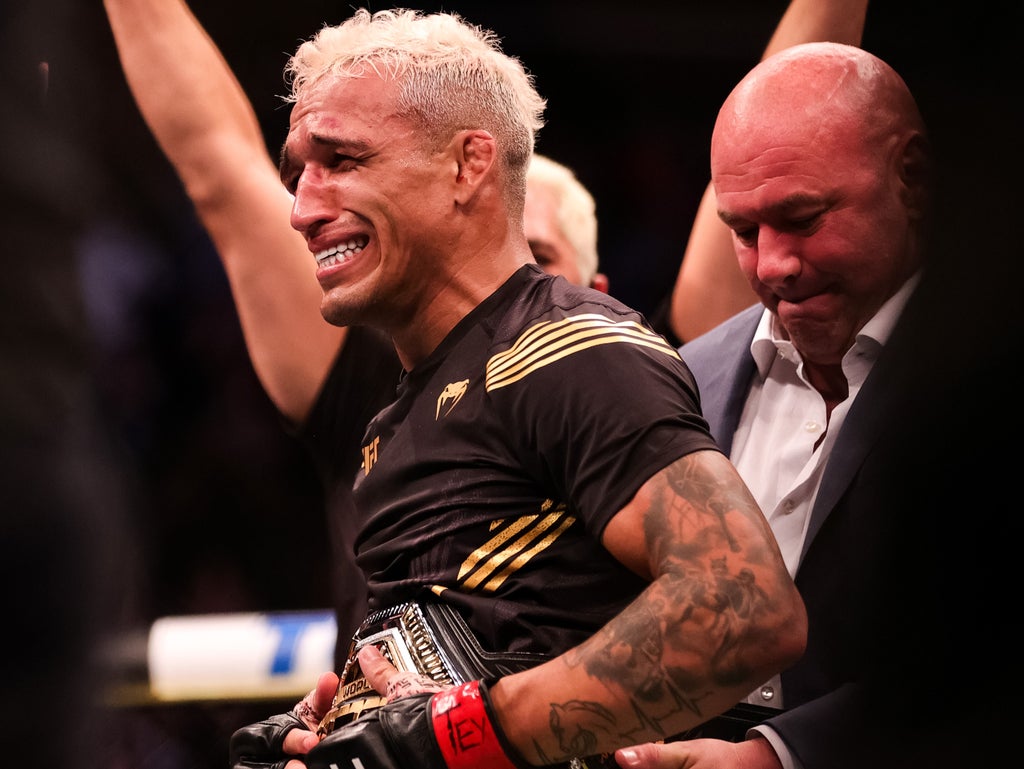
If it is a miracle that Charles Oliveira can walk, perhaps no word exists to sufficiently describe the Brazilian’s UFC career.
Up until he was seven years old, Oliveira was no different than any of the other children in the impoverished favela of Vicente de Carvalho in Guaruja, Sao Paulo; he spent every waking moment playing football, apathetic to the dearth of opportunities in the village, determined to convert his passion for the sport into a career.
While the conditions in Vicente de Carvalho were not exactly the type to incubate Oliveira’s dream, he decided that they were also not the type to extinguish it. Remarkably, neither was a doctor’s prognosis that Oliveira could become paraplegic.
The Brazilian received the news aged seven, a result of his affliction by Rheumatic fever, which left him in frequent, intense pain and even unable to walk at times. To add insult to illness, Oliveira was also diagnosed with a heart murmur.
Twenty-five years on, he is one of the greatest mixed martial artists on the planet.
While Oliveira’s dream of becoming a professional footballer did not materialise, he was nevertheless able to overcome his illness to excel at jiu-jitsu and go on to become one of Brazil’s most inspiring sporting figures: the UFC lightweight champion, a fighter with more finishes and submission wins than any other in the company’s history.
“With my illness, I never thought I wouldn’t be able to achieve my dreams,” Oliveira tells The Independent over Zoom, his t-shirt seemingly on the verge of disintegration from the sweat induced by an afternoon spent training.
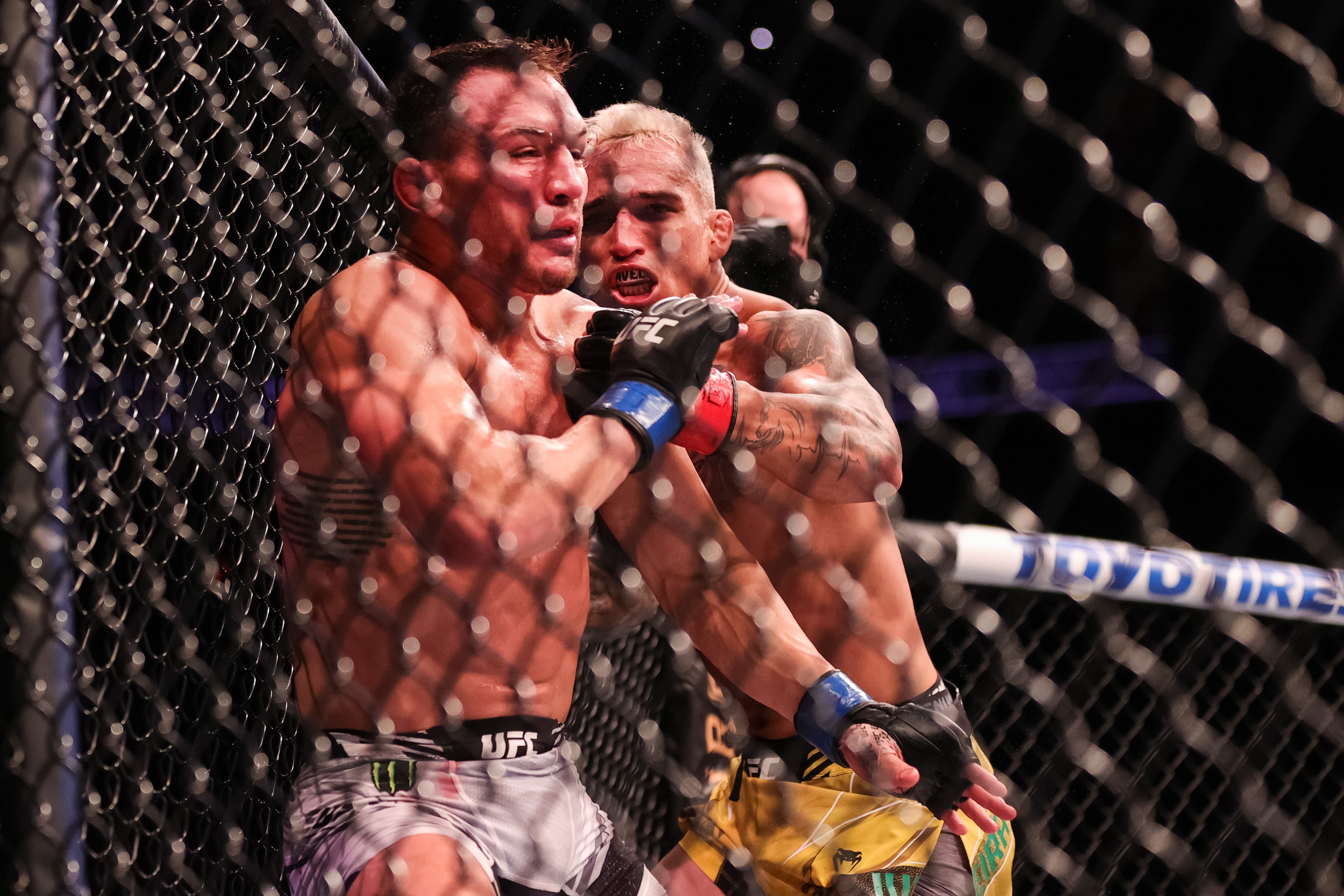
“I always believed and had a lot of faith that any dream I had, I could achieve it. Of course, as with any kid at the time, I just wanted to play football and have a future in that. But sports in general in Brazil are complicated; there aren’t many opportunities for everyone, so I knew it would be hard. But I just kept my faith and believed everything would happen the way I wanted.”
Just as Oliveira, a devout Christian, refused to view his early ailments as divine signs that he was not destined to become an athlete, he refused to accept moments of adversity in his first UFC title shot and first defence as signs that he was not supposed to be a champion.
Having debuted in the UFC in 2010 and endured inconsistent stints at featherweight and lightweight, it took Oliveira 11 years and a stupefying 28 fights to reach his first title shot in the promotion. In that bout, against Michael Chandler last May, Oliveira was on the verge of being knocked out late in the first round. Within seven seconds of the second frame, “Do Bronx” had knocked down the American, completely turning the tide to knock out Chandler moments later. Then, last December, the champion was the underdog in his defence against Dustin Poirier, who knocked down Oliveira twice in the first round.
The jiu-jitsu black belt, whose mentor in the art was killed in a shooting in Vicente de Carvalho when Oliveira was just 14, somehow remained composed and stuck to his gameplan. He targeted Poirier’s body with kicks and knees, wearing down the American on the feet then on the ground with his grappling, before submitting the former interim champion in the third round.
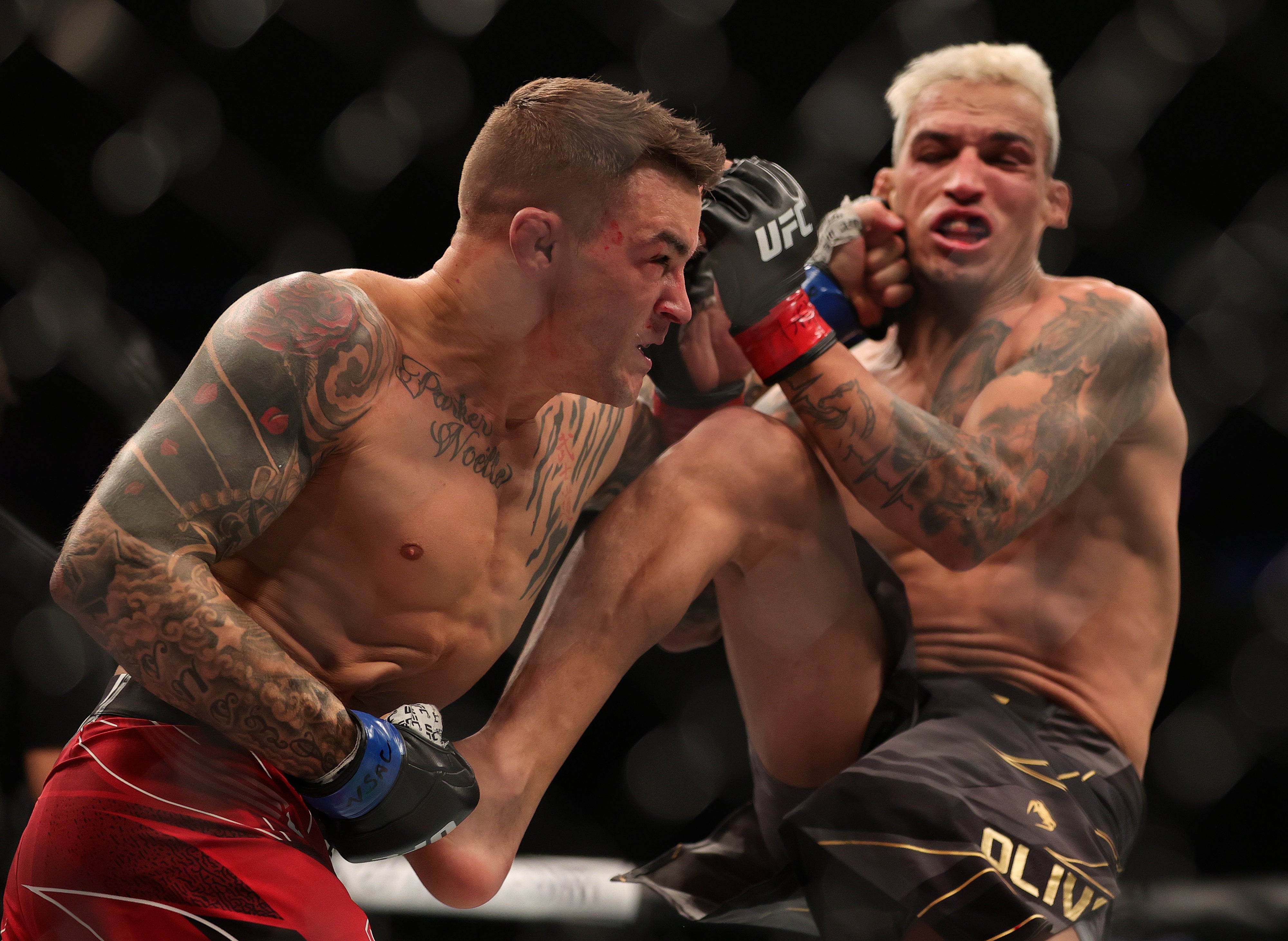
“It’s an evolution, I’m always evolving,” explains Oliveira, who jokes his eyesight is so poor that he sees three versions of his opponent during a bout. “A fighter can’t only know how to hit; he needs to know how to take a hit and stay calm and get over it. I was in trouble at some points in those fights, but I kept my head in the game, kept composed and knew that I couldn’t waste any opportunity that I had.
“Against Dustin... we’re talking about MMA, it’s unpredictable. So, I knew I had to keep an eye on him anyway, but each round I was improving, growing, and he was getting tired. He was looking at the clock the whole time, especially after the middle of the first round. I knew that I surprised him; he was hitting me and I was still moving forward. I knew then that he was in trouble in some way, and that things were looking better on my end than his.
“I always say I want to bring joy and boldness to the Octagon, and I feel like I did that [against Chandler and Poirier]. I was shocking the world and showing everyone I’m not just one more fighter; I’m Charles Oliveira, I am the champion. I showed how much I can evolve and have evolved, so I had a lot of fun in there and just shut up everyone who was criticising me.”
Oliveira’s victory over Chandler – to claim the belt vacated by Khabib Nurmagomedov – was followed by jubilant celebrations from the 32-year-old, who jumped over the fence and shouted joyously at Joe Rogan at the commentary desk, before sprinting around the arena to share the moment with fans and his friends and family. Shortly thereafter, UFC president Dana White wrapped the belt around Oliveira’s waist, but the Brazilian took it off to run around the ring with the gold clutched against his chest like a child with their favourite stuffed toy.
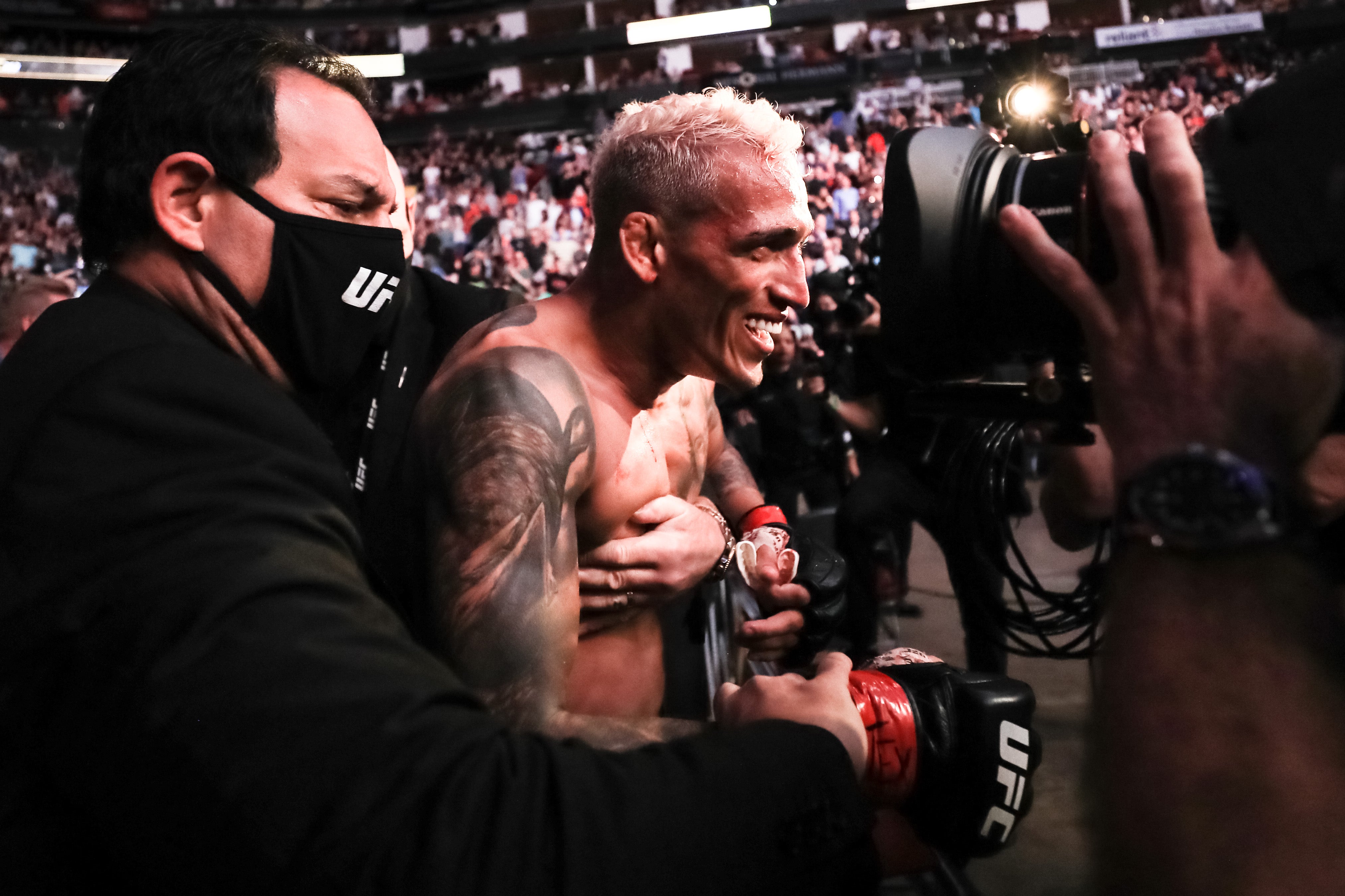
“While Dana was putting the belt around my waist, I just kept thinking about everything I’d gone through, everyone that said I wouldn’t get the belt, that I wasn’t talented enough to get there,” Oliveira recalls. “I was just thinking about my faith and how much I worked, believed and bled to get to that place. All I have right now is just gratitude for everything I’ve achieved so far.”
While Oliveira’s celebrations after his title win were ecstatic, he followed his victory over Poirier with the calmest of reactions, strolling slowly and stony-faced across the Octagon while pointing to the ceiling, acknowledging his faith.
“My first title shot, my friends and family were there, it was the first time I’d been in that position,” Oliveira tells The Independent. “It was achieving a dream after 11 years of hard work, so that’s why I reacted that way. The second time actually, with Dustin, the commission warned me before that I couldn’t jump the cage or anything, because I would get fined. So, I had that in mind. That kind of made my celebration a little less crazy. But I felt the same way inside, so happy.”
With his victories over Chandler and Poirier, Oliveira extended his win streak to 10, with all of those results having come via stoppage.
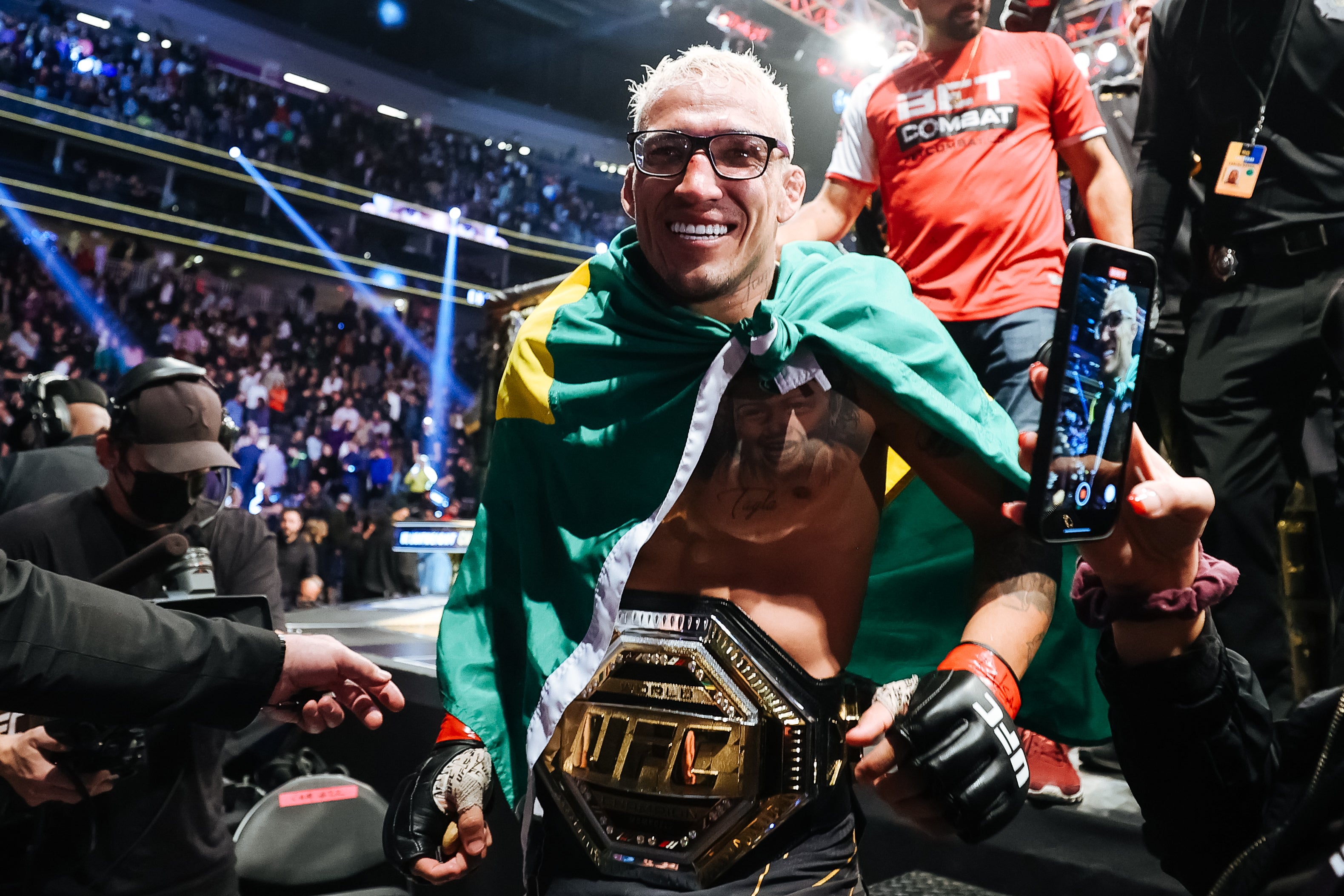
Next up for the champion is Justin Gaethje – a former interim lightweight title holder, like Poirier.
The American has heavy hands and almost unrivalled defensive wrestling skills, the combination of which only augments a proclivity for brawling that has seen seven of the 33-year-old’s nine UFC fights end via KO/TKO – five of them in Gaethje’s favour.
In his most recent outing, Gaethje went the distance for the first time in his UFC career, winning a fight of the year contender against Chandler. That result was an ideal response by Gaethje to his submission loss to Khabib in the Russian’s final bout, re-establishing the American as the No 1 contender at 155lbs.
To beat Oliveira in the main event of UFC 274, however, Gaethje must overcome a man who has overcome obstacles that he had no right to.
Oliveira will walk into UFC 274 – that act a miracle in itself – looking to prove once again: “I’m not just one more fighter.”







